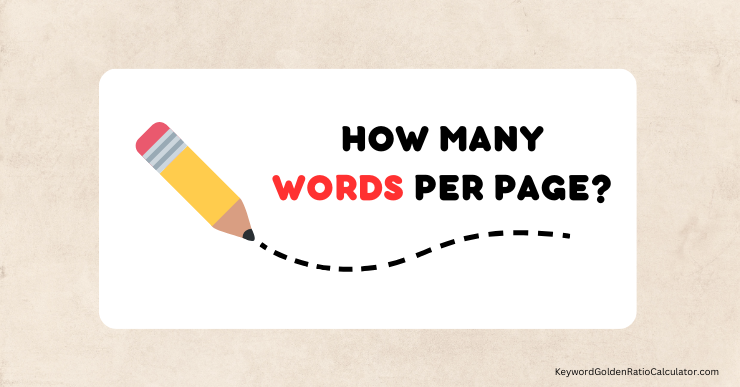Single-Spaced
How many pages is 500 words? – 500 words is approximately 1 page
How many pages is 750 words? – 750 is approximately 1.5 pages
How many pages is 1,000 words? – 1,000 is approximately 2 pages
How many pages is 1,250 words? – 1,250 words is approximately 2.5 pages
How many pages is 1,500 words? – 1,500 words is approximately 3 pages
How many pages is 2,000 words? – 2,000 words is approximately 4 pages
How many pages is 2,500 words? – 2,500 words is approximately 5 pages
How many pages is 3,000 words? – 3,000 words is approximately 6 pages
How many pages is 4,000 words? – 4,000 words is approximately 8 pages
How many pages is 5,000 words? – 5,000 words is approximately 10 pages
How many pages is 7,500 words? – 7,500 words is approximately 15 pages
How many pages is 10,000 words? – 10,000 words is approximately 20 pages
Double-Spaced
How many pages is 500 words? – 500 words is approximately 2 pages
How many pages is 750 words? – 750 words is approximately 3 pages
How many pages is 1,000 words? – 1,000 words is approximately 4 pages
How many pages is 1,250 words? – 1,250 words is approximately 5 pages
How many pages is 1,500 words? – 1,500 words is approximately 6 pages
How many pages is 2,000 words? – 2,000 words is approximately 8 pages
How many pages is 2,500 words? – 2,500 words is approximately 10 pages
How many pages is 3,000 words? – 3,000 words is approximately 12 pages
How many pages is 4,000 words? – 4,000 words is approximately 16 pages
How many pages is 5,000 words? – 5,000 words is approximately 20 pages
How many pages is 7,500 words? – 7,500 words is approximately 30 pages
How many pages is 10,000 words? – 10,000 words is approximately 40 pages
How Many Words Per Page? Your FAQs Answered
How does word count affect SEO?
Longer content can provide more value and context, which can improve SEO. However, quality and relevance are more important than sheer word count.
Can too many words on a page negatively impact user experience?
Yes, excessive text can overwhelm readers. It’s important to keep content clear and concise, and use headings and bullet points to break up the text.
What are the best practices for writing content for different page types?
For homepages: concise and engaging. For service pages: detailed and informative. For blog posts: in-depth and valuable.
How can I determine the right word count for my specific audience?
Analyze your audience's preferences and behavior. Test different lengths and monitor engagement metrics to find what works best.
Does word count affect page load times?
Yes, more words mean larger page files, which can slow load times. Optimize content and use efficient coding practices to mitigate this.
Is there a recommended word count for SEO-optimized blog posts?
Aim for 1,000 to 2,000 words. Longer posts can perform better in search rankings if they provide comprehensive and valuable information.
How should I balance quality and quantity in my content?
Prioritize creating high-quality, relevant content. Aim for a word count that allows you to thoroughly cover the topic without unnecessary fluff.
What tools can help me measure and optimize my page word count?
Tools like Google Analytics, Yoast SEO, and readability checkers can help you measure and optimize word count and content effectiveness.
How often should I update the word count on my existing pages?
Review and update content regularly, especially if it becomes outdated or if you have new information to add. Aim to refresh content at least once a year.

